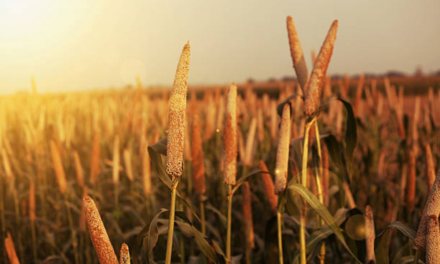Innovations in feed technology are playing a transformative role in enhancing livestock health, improving productivity, and ensuring sustainability in the animal husbandry sector. As livestock farming continues to grow to meet rising demands for dairy, meat, and poultry products, the focus has shifted toward developing nutrient-efficient, cost-effective, and eco-friendly feed solutions. Advanced feed technologies are addressing challenges like poor-quality feed, nutrient deficiencies, and the environmental impact of traditional feed production, providing significant benefits to both farmers and animals.
Modern feed innovations include the development of precision feed formulations tailored to the specific nutritional requirements of different livestock species, growth stages, and production purposes (e.g., dairy, meat, or egg production). These formulations ensure optimal nutrient delivery, improve digestion efficiency, and promote better weight gain, milk yield, and egg production. The use of additives like probiotics, prebiotics, enzymes, and amino acids in feed enhances gut health, immunity, and overall animal well-being, reducing dependency on antibiotics and promoting antimicrobial resistance management.
Cutting-edge technologies like feed fortification and microencapsulation are being utilized to enrich animal diets with essential vitamins, minerals, and energy sources, ensuring livestock receive balanced nutrition. Innovations such as hydroponic fodder production systems and silage preservation techniques are improving the availability of high-quality green fodder year-round, addressing seasonal feed shortages, and reducing farmers’ dependency on external resources.
In addition, smart feeding systems leveraging IoT (Internet of Things) and AI-based analytics are revolutionizing livestock nutrition management. These systems monitor feed intake, animal behavior, and health metrics in real-time, allowing farmers to adjust feed rations accurately and reduce wastage. Such technologies improve efficiency and lower feed costs while enhancing livestock health and productivity.
Sustainability is also at the forefront of feed technology innovations, with increasing use of alternative feed sources such as insect protein, algae, and agricultural byproducts. These eco-friendly solutions reduce pressure on traditional feed ingredients like soybean and corn while lowering the carbon footprint of livestock farming.
Government initiatives and collaborations with research institutions and private sector players are further driving advancements in feed technology. Subsidies and financial support are being provided for feed plants, fodder banks, and the adoption of advanced feed processing techniques to improve feed availability and affordability for small and marginal farmers.
By optimizing nutrition, enhancing animal health, and reducing environmental impact, innovations in feed technology are transforming the livestock sector. These advancements not only ensure better productivity and profitability for farmers but also contribute to sustainable livestock farming, food security, and the well-being of rural communities.









